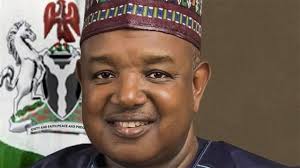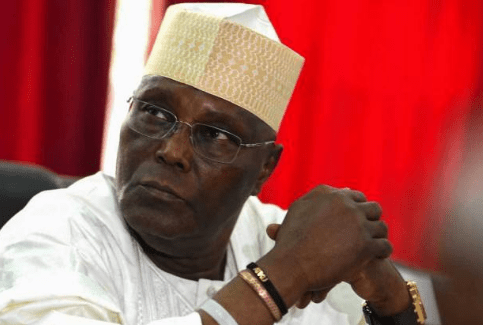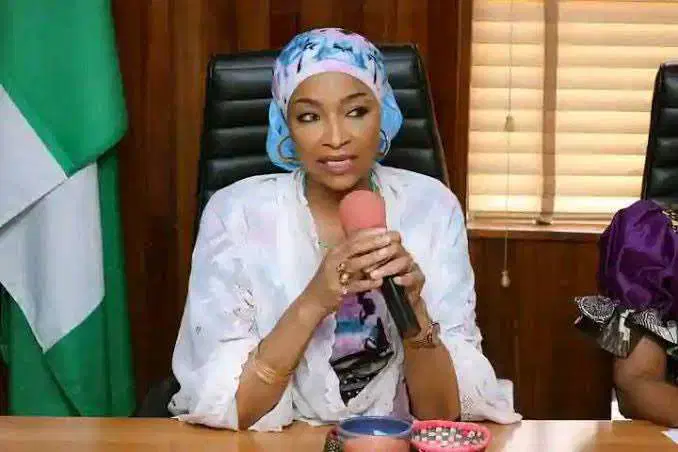The Governor of Kebbi State, Atiku Bagudu has advocated for real time investment in other sectors of the nation’s economy if the much talked about diversification of the economy from oil and gas must be a reality.
Bagudu spoke Monday at a public hearing on a bill for an Act to establish the Nigerian economic diversification council organised by the Senate Committee on National Planning and Economic Affairs.
The governor, who is a former senator said Nigeria is a blessed nation in all sense of the world and “we need to support different sectors of Nigeria, we need to support different constituents of Nigeria to do better.

“We have done well in petroleum and gas not because it is the only sector, but that is where we put in the most money. May be we have put, on an average basis between 1990 to 2010, which have been investing about 10 billion dollars in petroleum and gas when I say we, it is both public and private sectors”.
According to him “if you measure how much has been going into agriculture, for example, in that period, may be, it is less than 500 million dollars.
He said it will not be surprising that the outcome will be different, adding, “may be if we take mining, whether it is gold, which every state has something to offer, again may be we have not invested as much.
For him, “diversification has restructuring as an element of that so that we support the constituent parts whether they are states or sectors so that each can contribute more than it is contributing.
“Some of the anger we have had in the land may be result from the lack of inclusion when oil production was contaminating water bodies or in the oil producing states.
“Those who hitherto used those fresh water bodies as sources of livelihood for fisheries so those water bodies taken over by weed. And they also got angry and they said it doesn’t matter, you can go on producing oil but what about us.
He said late President Umaru Yar’Adua recognised that we had an amnesty programme that was restraining them and may be similarl things are happening elsewhere that if we recognise and provide legislative backing to our diversification quest, we will be able to tell the world we are serious about diversification.
“The evidence in the last seven years had some positive traction that we can build and we can do better and quicker, adding that “it’s a collective”.
“Nigeria is a trillion dollar investment destination. Nigeria, what is our federal budget, less than 35 billion dollars, may be the national assembly is about to pass the 2023 budget I’m sure it won’t be up to 40 billion dollars. What is the budget of Brazil a country that is similar to Nigeria in terms of population, about 700 billion dollars.
“So if somebody is taking care of 220 million people with 700 billion dollars, you are taking care of 200 with less than 10 per cent of that. Isn’t it a no brainer that you will not be able to achieve as much. But we have to all come together, we have to borrow more money if that is what is required or we have to support all sectors to produce more money so that we can fund all our priorities bad.
On the forthcoming election, he thinks “we have made a statement enough in Nigeria that everyone is convinced that free, fair and transparent elections always lead to more confidence in the society, less rancour in the society.
He said the value of free, fair and transparent election is there for all to appreciate, adding “what is important is for everyone to see what more can I do to ensure that we have free, fair and transparent election.
“Sometimes, we are all guilty in the sense that we think it’s somebody who should solve the problem.
However, he said even transparent elections do not guarantee the best outcomes, sometimes still, democracy is based on appeal of populist leaders, leaders who are popular at a particular time.
“We should all play a role to ensure that our processes are strengthened And they are strengthening. Today INEC is enhancing the transparency of election by better accreditation, speedy accreditation, better transmission of results in good time, security agencies are helping, above all President Buhari has committed to free, fair and transparent election even in states where our party has lost elections.
“We are a blessed nation in all sense of the word and we have to support and we need to support different constituents of Nigeria”, he concluded.
Mr. Thomson Akpabio from Nigeria Employers Consultative Association (NECA) drew the attention of the committee to section 332 which stipulates 2% tax on imported textile while it imposes 10% on locally produced one thereby serving as a disincentive to local manufacturing.
The sponsor of the bill, Sabi Abdullahi (Niger North) expressed his delight that the public hearing was well attended as stakeholders made very meaningful contributions that will enrich the legislation.




